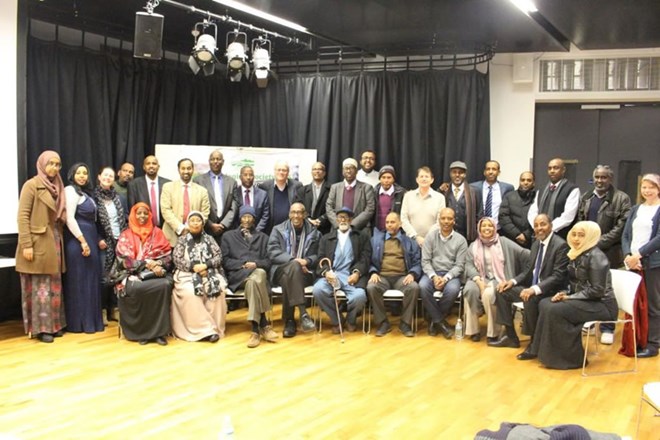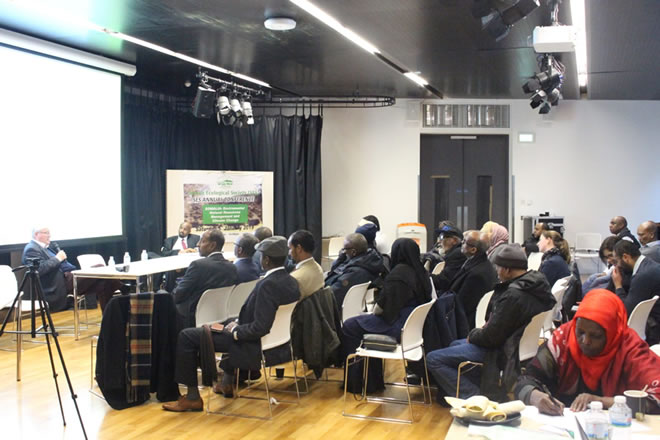
Somali Ecological Society (SES)
Thursday January 10, 2019

Last Saturday, despite chilly weather that differs sharply to those facing the climate in Somalia, the Somali Ecological Society (SES) Annual Conference, at Willesden Central Library, drew warmth, energy and informed commitment from representatives across the Somali community.
Chair, Mr. Mohamoud Ibrahim warmly welcomed participants and gave a brief progress report, welcoming feedback throughout the day and encouraging new membership to support its work. The honorary President, Harry Leefe, then gave a brief presentation about the vision of SES and its planned activities in the short and medium term. Keynote speeches followed by:
Ms. Sadiye Musse Ahmed of PENHA(Pastoral and Environmental Network of the Horn of Africa )gave a valued, informed and interesting account of key environmental problems and issues facing the peoplesof the Horn of Africa. Dr Mohamed Abdiraham (Former Director General of Ministry of Livestock) gave report based on his recent visits and Dr Abdirahman envinmental degradations.
Dr. Yusuf Omar Ali, (former Director of Science at Somali Academy of Science and Arts) gave an in-depth presentation on Somalia’s Marine and Coastal Environment, stating that the marine and coastal environment is the least studied part of the Somali environment. He explained the Somali maritime zone is one of the largest in the western Indian Ocean and has one of the most important marine ecosystems...

Mr. Mohamed Ighe, former Wildlife Conservation Officer of the National Range Agency, Somalia,stated thatthe majority of big game (elephants, giraffes, rhinos and zebras) have all unfortunately disappeared. The war forced much of the remaining wildlife of the southern regions to flee to Kenya and Ethiopia. However, their gradual return in recent years indicates a less bleak future for wildlife of Somalia. Unfortunately, Mr. Ighe noted the illegal trade in wildlife became more active with the outbreak of war. Mr.Ighe stated that, through SES, he is trying to contact former wildlife conservation officers inSomalia to set up monitoring posts.
Ms. Josephine Mahony (PhD student from Oxford University) presented climate model results illustrating climate and ocean patterns of the Horn of Africa,and potential risk scenarios associated with climate change. She engagingly summarised global climate and ocean systems that impactthe Somali region with visual animations. She emphasised some of thelimitations of predictive climate models for the region and then focussed on the potential impact of temperature rise and changing rainfall patterns. She highlighted not so much the extremity of change, but rather the increased potential impact on life in an already semi-arid environment. She noted how little Somalia had contributed to global carbon emissions and stressed its eligibility for international funds for climate mitigation, adaption and resilience.
In conclusion Mr. Harry Leefe presented a proposal submitted to the Princes Trust to carry out a feasibility study on waste disposal in Mogadishu.Mr. Desmond Mahony then facilitated an informed discussion of participant views and priorities, many of whom had held responsible posts in the environment sector, whilst others brought their commitment and passion for a neglected issue that urgently needs addressing in the Horn of Africa to the discussion.
The take home message was that the environment in Somalia urgently needs support and the Somali diaspora has skills and energy to achieve that.
If you would like to learn more about the work of the Somali Ecological Society please contact Mr. Mohamoud Ibrahim (Chairman), 238 High Rd, Willesden to join the society. Email: [email protected]